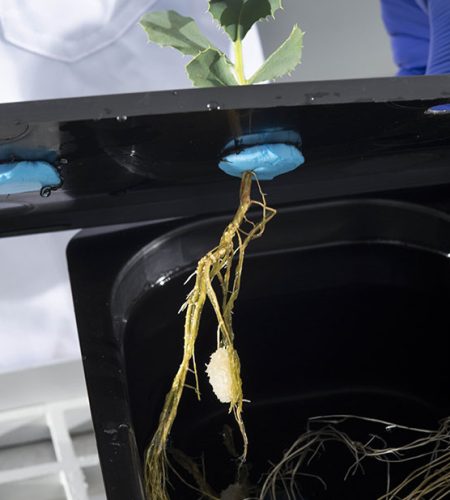Professor Chengrong Chen
Project Leader
Griffith University
Rhizobium inoculation has contributed significantly to the supply of nitrogen in most farming systems, but the availability of peat – the most widely used carrier for Rhizobium – is a non-renewable resource and is becoming increasingly scarce in many regions. As well as this, the existing inoculation techniques often result in low survival rates of rhizobia on the seed and in the soil due to desiccation and heat, and this limits the nitrogen-fixing efficacy of the rhizobial inoculants.
This project will employ a suite of advanced analytical approaches to evaluate the suitability of locally available, low cost organic and inorganic materials, biochars produced from different feed stocks and pyrolysis conditions, and emerging biopolymers as alternative carriers for effectively delivering rhizobia.
The project will also address the issue of capturing and retaining moisture to improve prolonged survival of rhizobial inoculants. There will be new knowledge on cost-effective alternative carriers for formulation of rhizobial inoculants to improve legume nitrogen-fixation and soil productivity in Australian farming systems.
This project will evaluate locally available and newly emerging alternative carriers to provide practical solutions to the desiccation issue through close collaboration with industry and farmer groups.
The key outputs will be the new knowledge on alternative carrier materials for capturing and retaining moisture as well as supporting the growth of rhizobia, and ultimately, other soil performance enhancing bacteria.
Novel alternative carrier products selected and manufactured during this project after glasshouse trials will be gradually adopted in collaboration with inoculant manufacturers to a small scale production for trial by farmer groups.
This project will contribute to economic benefits for farmers through reduced nitrogen inputs, cheaper and more effective inoculants and better crop and pasture yields.

